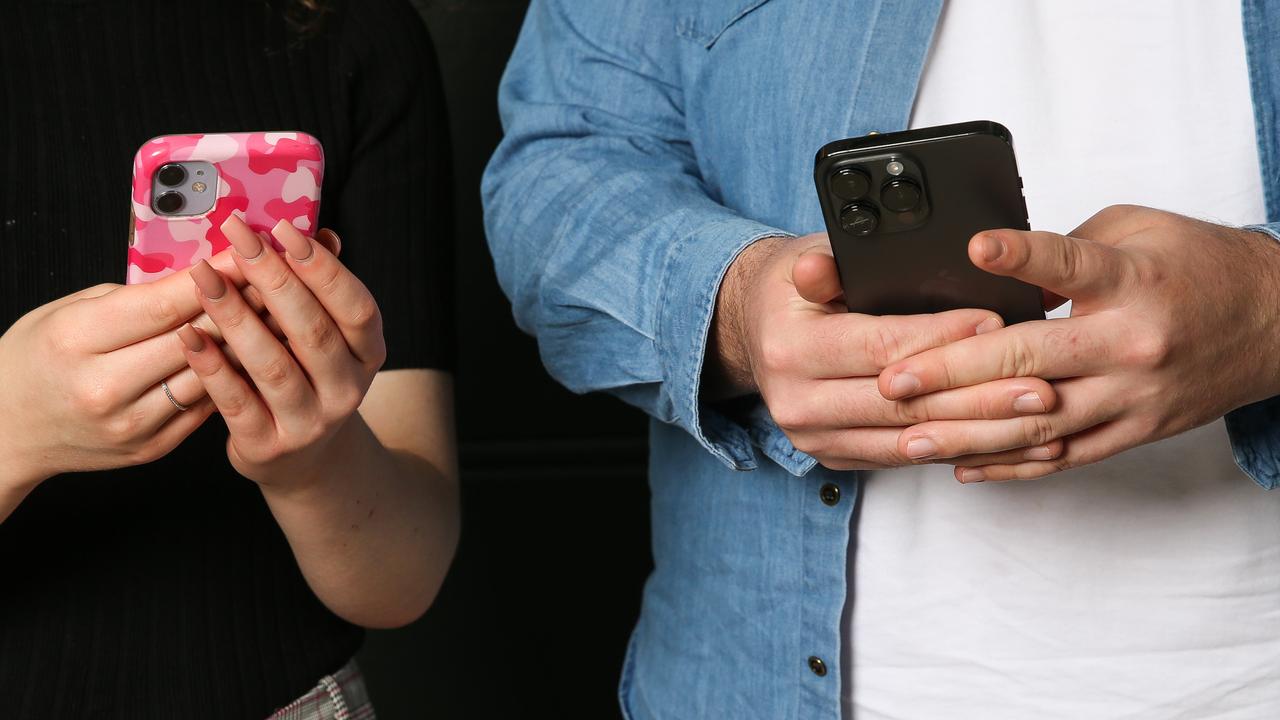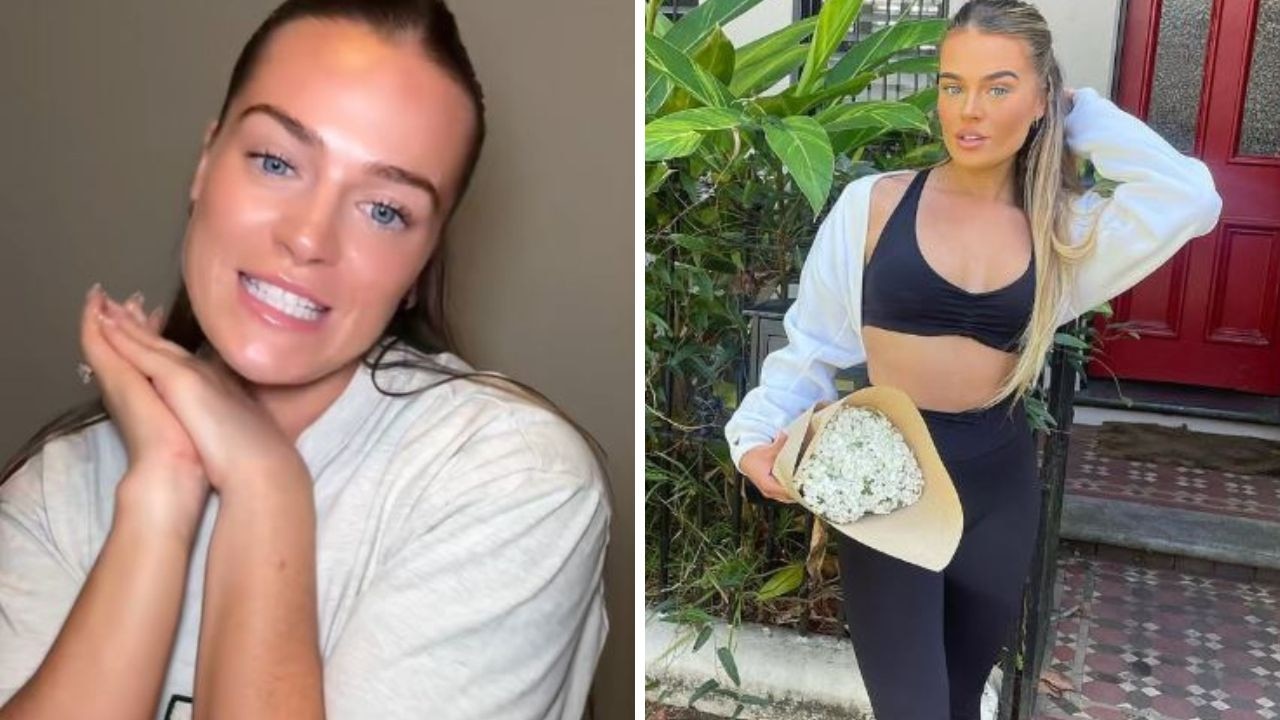‘Slow death’: Covid-19 savages Chapel Street small businesses
There is something different about Melbourne’s current lockdown, with Covid-19 finding a new “soul destroying” way to ruin the livelihoods of small business owners.
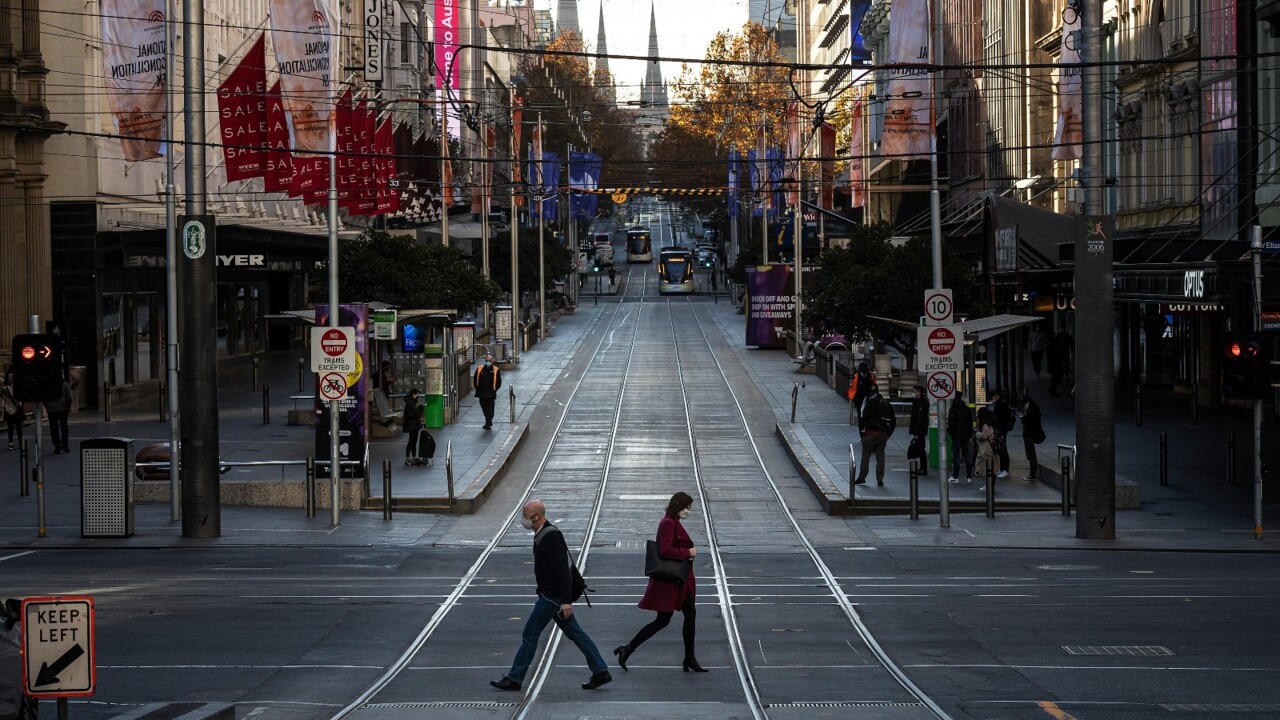
A once thriving retail strip shows the pain business owners are suffering as Melbourne’s sixth lockdown drags on.
The once-bustling precinct of Chapel Street in the heart of the city has been turned into a ghost town.
Morbid mannequins glare out from shop windows and “we’re closed” signs greet anyone brave enough to enter the dead zone.
Shops have shut their doors — some for good — along the iconic shopping strip that stretches for four kilometres in the inner city suburbs of South Yarra, Prahran, Windsor and St Kilda.
For Paul Kasteel, a business owner who has run his modern Asian restaurant Miss Kuku for the last 15 years, the silence is all too eerie.
“It’s like we’re being bled to death,” Mr Kasteel, 48, told news.com.au.
“We’re being slowly strangled, we can’t open fully up and can’t make enough money to pay our debts.”
Melbourne went into its sixth lockdown on August 5 after health authorities detected the Delta strain of coronavirus out in the community.
However, Mr Kasteel says there’s something different about lockdown number six that is “soul destroying” for everyone on Chapel Street.
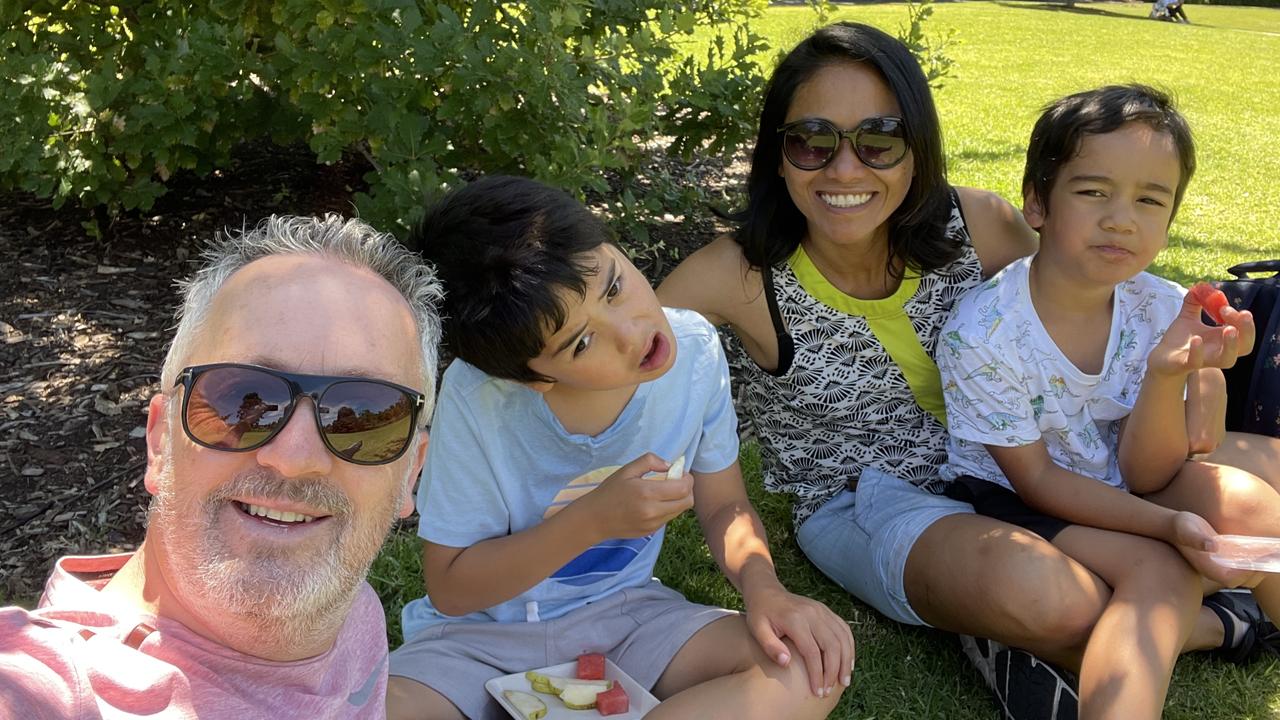
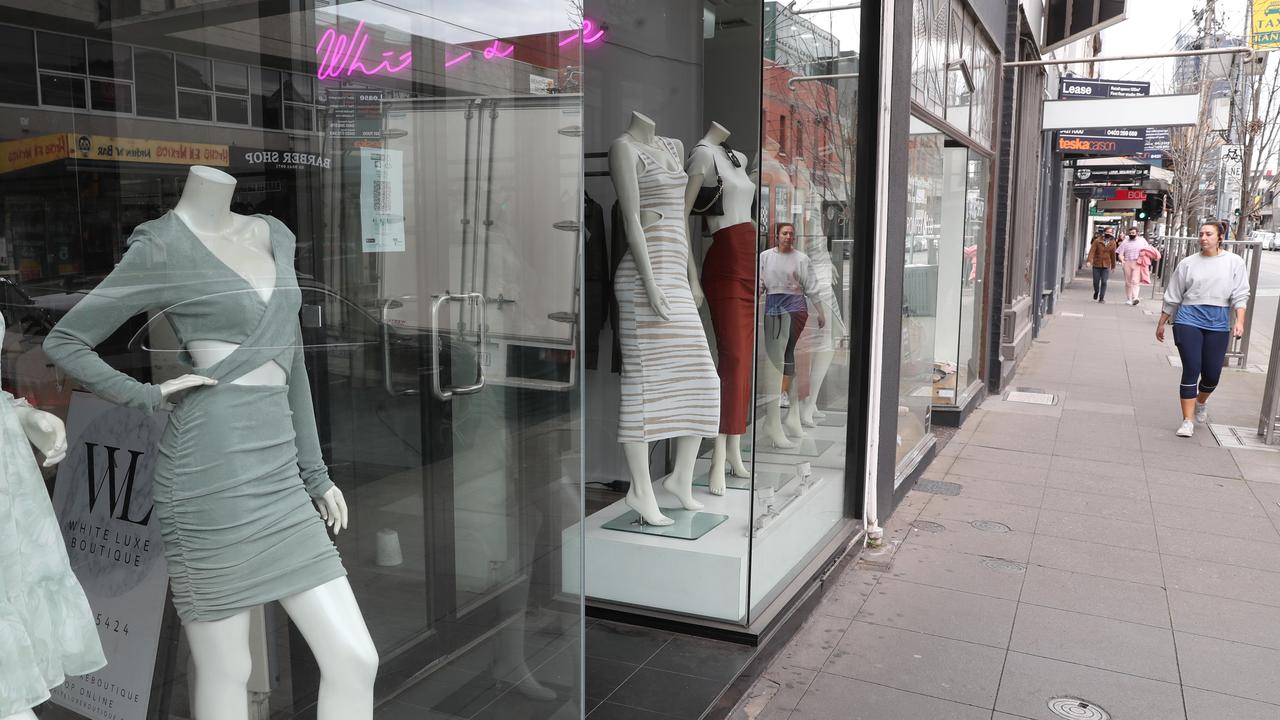
“This time has been really, really flattening. The communication about bookings and the future has stopped,” Mr Kasteel explained.
The dad-of-two explained that every lockdown makes it “harder to rebook people” which is especially difficult for him because most of his customer base is bookings for events like birthdays, corporate parties and farewells.
“As soon as there’s a lockdown, I have to go to my diary and write to all those people and cancel all their details, then I have to assure them I’ll give them their money,” Mr Kasteel said.
“We had a couple of groups who it was their fifth cancellation.
“Normally I get a 50 per cent response back, people rescheduling, but after this lockdown I got zero.
“Everyone just gave up.”
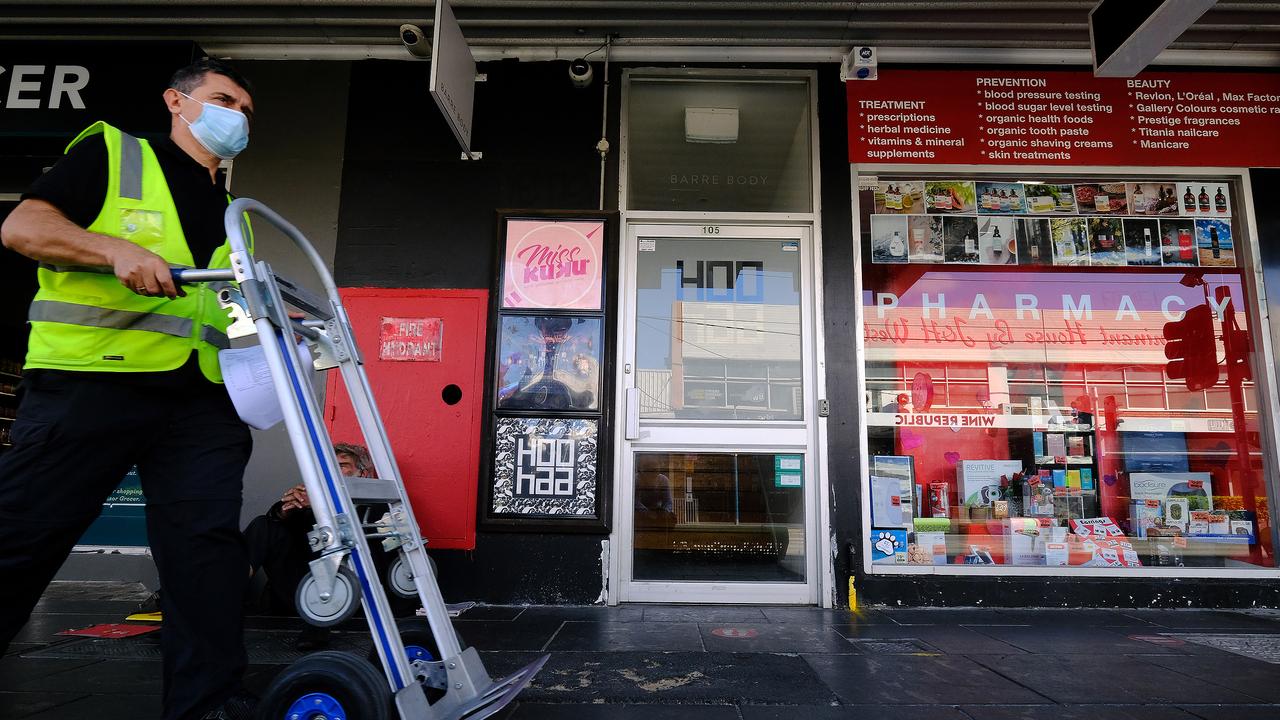
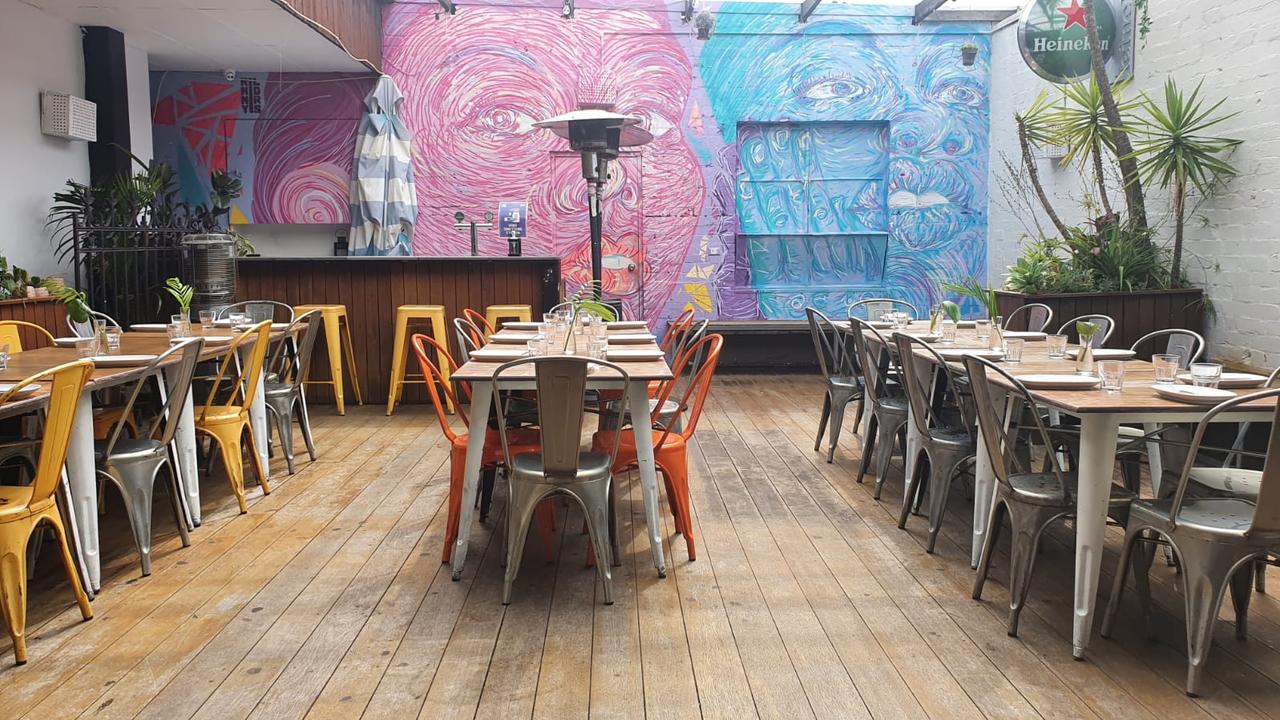
Mr Kasteel himself has given up in a way — he made the decision the close his business temporarily during lockdown, and not even bother to open for takeaway, because it wasn’t economically viable.
“I noticed in our street, a lot of businesses that would do takeaway have given up,” he added.
“The places I go to get my coffee from, they say people are still going out and getting coffees, but less of it.”
The venue costs $1500 a week and he is still in talks with his landlord to get some rent relief.
Last year, Mr Kasteel insisted on staying open for takeaway as some of his staff members didn’t qualify for JobKeeper.
“I lost about $2500 a week staying open,” he said.
His revenue is down 82 per cent compared to the same quarter in 2019.

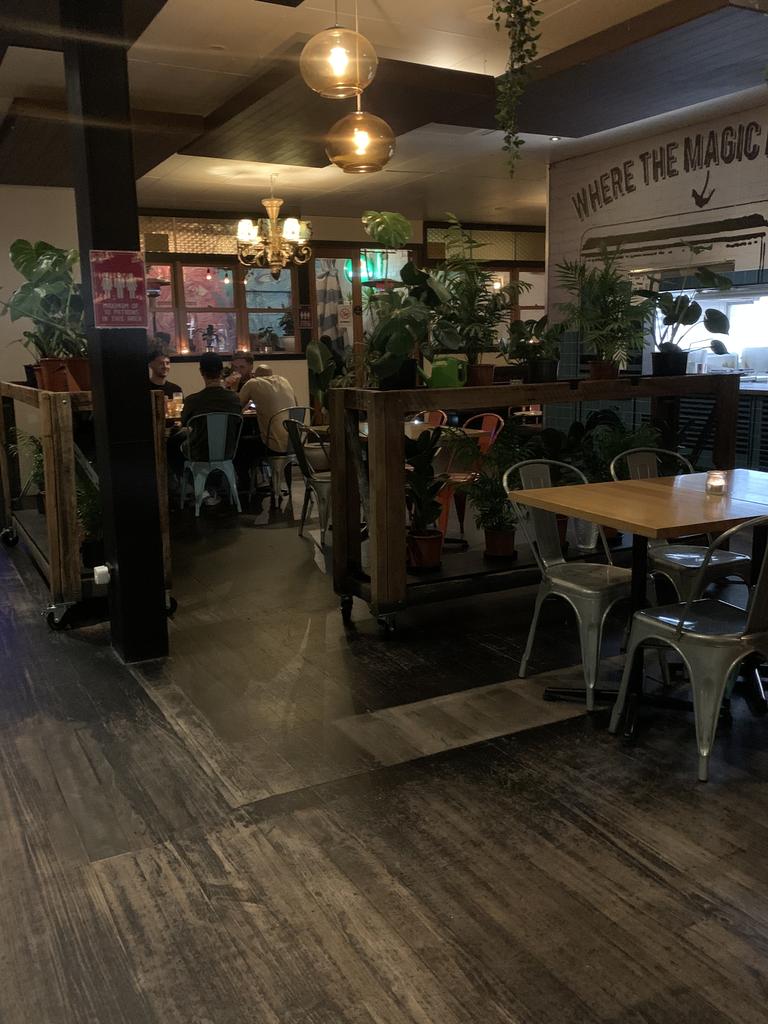
All up, at the time of writing, Melbourne residents have been in lockdown for 219 days, a large part of that due to their 112-day lockdown last year.
However, Mr Kasteel says that doesn’t tell the full story.
The full capacity of his restaurant is 260 people, but he hasn’t been able to have more than 170 patrons since the Covid-19 pandemic began thanks to the four and two square metre rule.
For 219 days (and counting) “my capacity has been zero,” he said.
“The remaining time my capacity has been reduced to 90 or 120. I’ve also had periods where it’s been 10 or 20.”
At full capacity in the summertime, he says he can make up to $50,000 a week in revenue. But he hasn’t seen that money coming in for the last 18 months.
“We struggle to make a profit at the best of times. And we’re still restricted, plus what we’ve accumulated in debt, it’s a slow death,” he said.
“You’re going to be bankrupt really quickly. It might take you six months to hit bankruptcy. You might be able to pay your bills for now but it gets harder.”
Mr Kasteel receives $10,000 a week as part of the Victorian government’s Licensed Hospitality Venue Fund 2021, but he says that still barely covers overheads and other costs, as well as GST and other ATO debts that were put on hold last year, but that he is now being asked to repay in full.
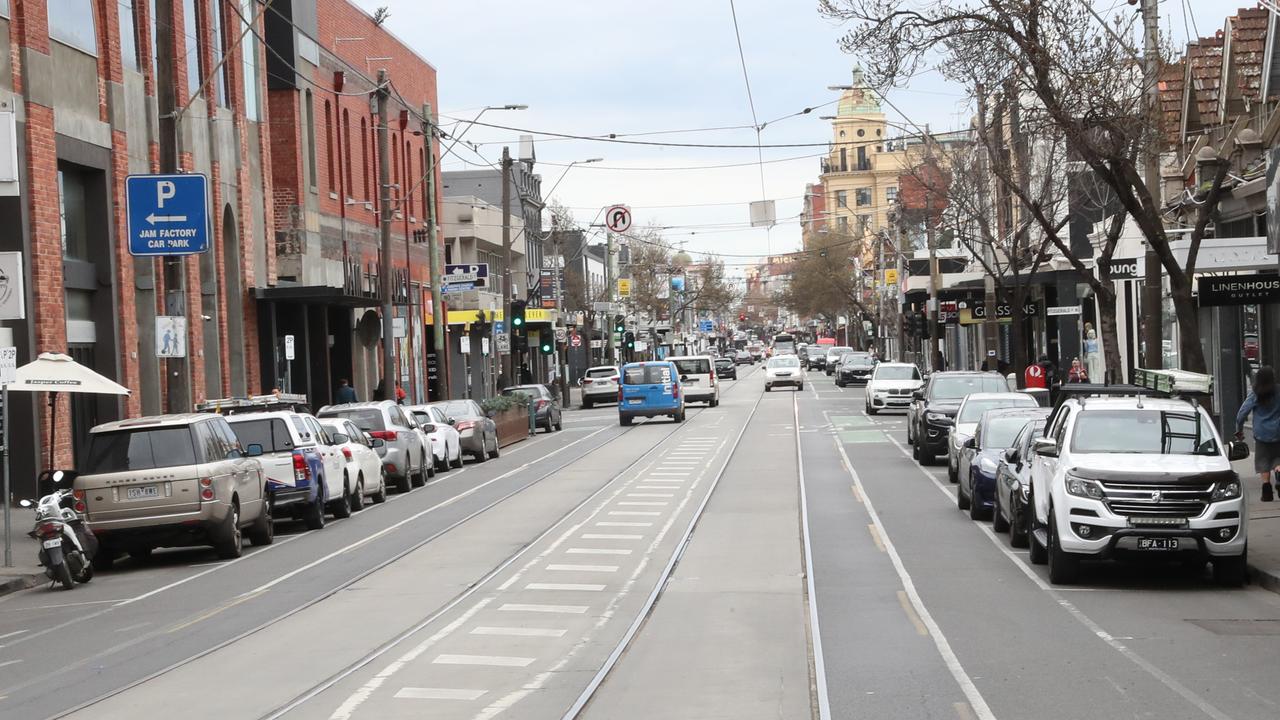
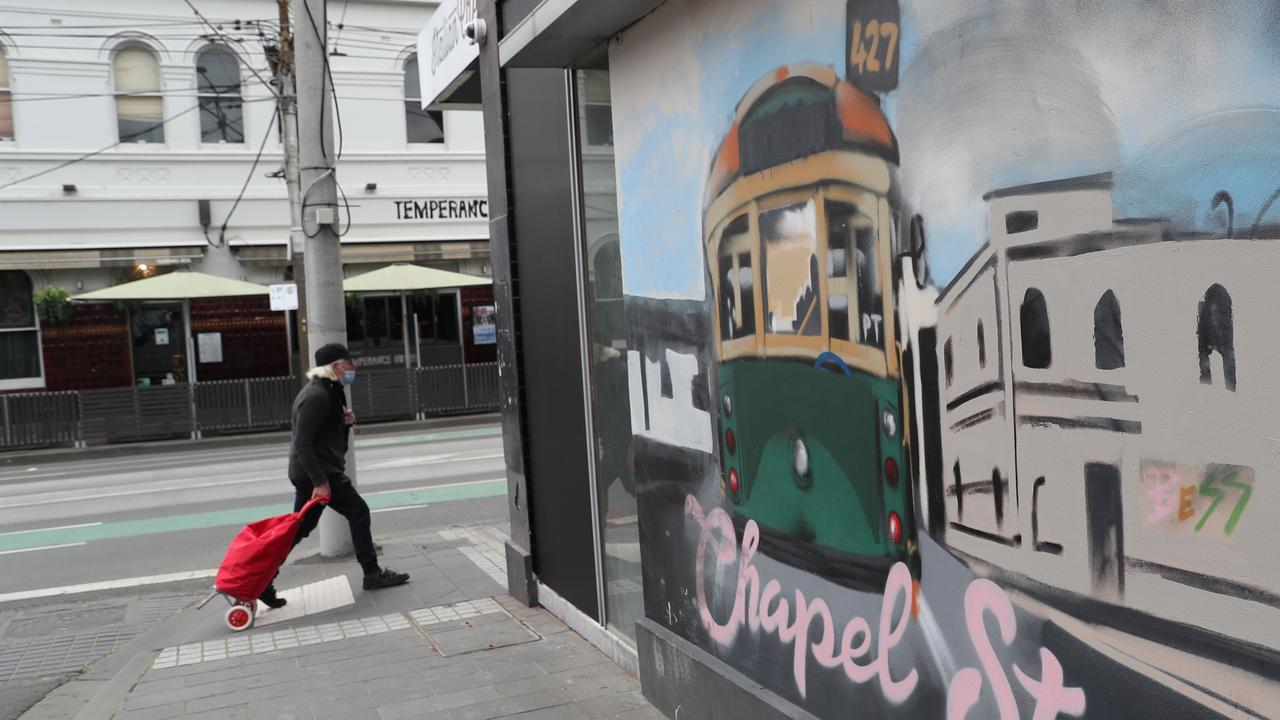
Carlie Lansdown, the owner of Soak Bar and Beauty located in South Yarra, has faced paying over $100,000 in rent a year for a salon that has barely been able to open over the past 18 months.
The fully licensed beauty salon, which only launched towards the end of 2019, has a huge reliance on parties for it to operate.
“It’s all your regular beauty services complemented alongside a fully licenced bar with wine, and cocktails and we were about to release a caviar service before this lockdown,” she said.
Coming out of lockdown last year, she said they couldn’t have had a better return, despite other businesses closing down around them, but this time around things feel different.
“When we do open, its buzzing and makes me so happy and now to just live last year’s nightmare all over again and watching the press conferences, it’s just devastating and hard to envision what the future holds,” she said.
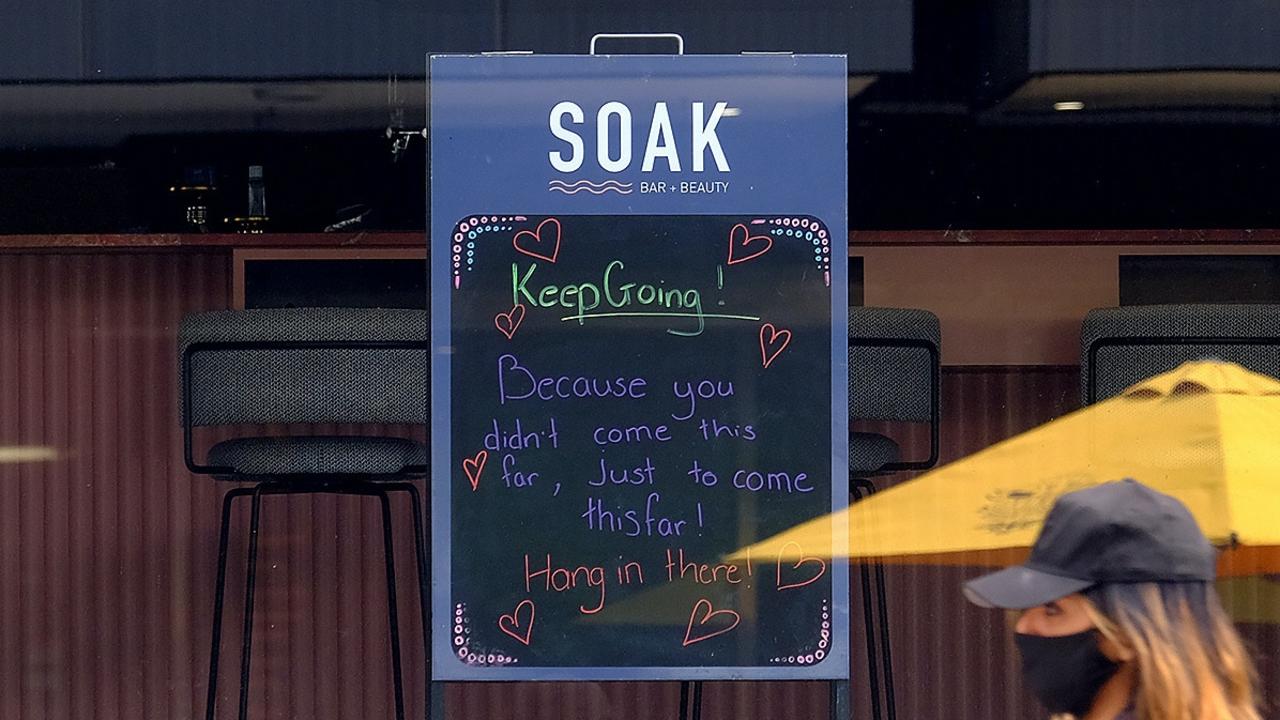
The 29-year-old said she is currently “bleeding money” and it’s hard to get out of bed some days.
“It’s really grim. In lockdown, our business just bleeds money and (the Victorian government) have made it extremely hard with the rent relief scheme, it wasn’t as easy a process as last year, and having to deal with stress of that and having to make sure you’re not paying full rent and paying a discount is hard,” she said.
She added its been particularly “emotionally hard” for her 23 staff members, many of who are young single females, and she is concerned about the incorrect messages they are bombarded about the Covid-19 vaccines on social media.
“They have all the time in the world to be sitting on social media where there is so many conspiracies put in front of their eyes and they feel a bit afraid to get the vaccine,” she said.
“Questions do run through staff minds. It’s hard for me as business owner to put pressure on them and I did encourage my staff, I have nine booked into my doctors for the vaccine, and it’s another stress for business owners to really encourage their staff to be fully vaccinated.”
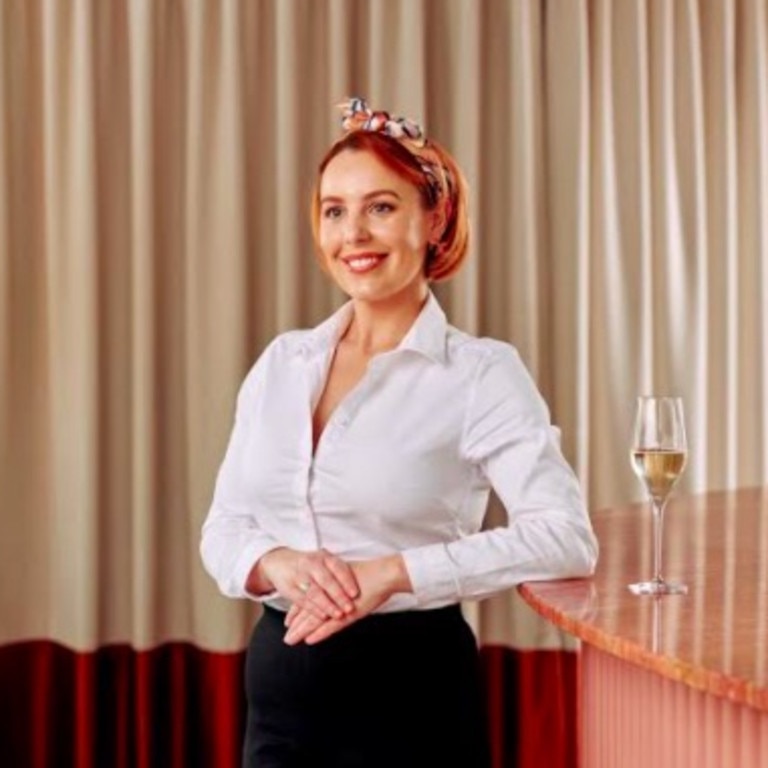
Ms Landsdown, who has had her first jab, predicts things won’t be easy when they open up either as she expects a divide between people who are vaccinated and those who aren’t.
“It will see us decrease in clients, even a little bit, with people having to be fully vaccinated,” she said.
“Then there’s the issue of getting younger staff fully vaccinated in time, if and when we are to open, and then how long will restrictions be in place? I’m quite lucky as I do have quite a large space but I know businesses that are much smaller, so at what percentage can you be running your business? To see the reward and effort you’ve put in become just doing it to get by, then it makes it hard.”
Others are also struggling.
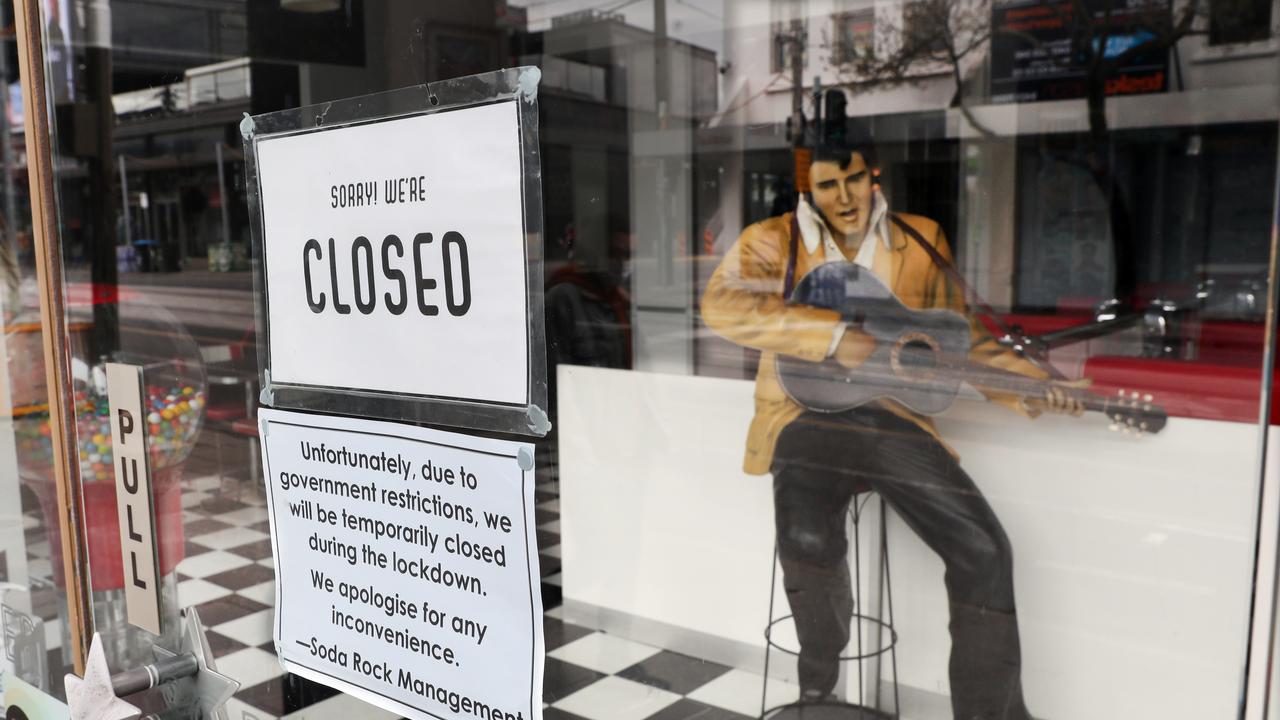
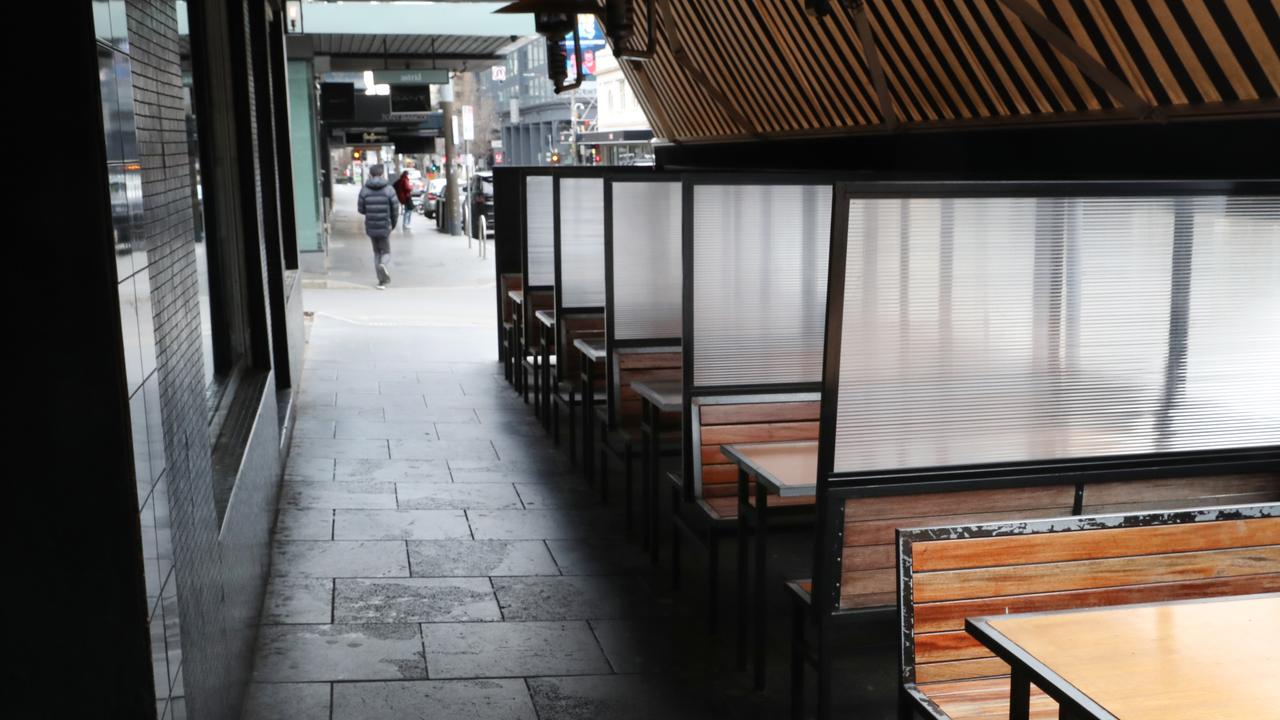
Sophia Harris is the project manager of the Melbourne branches of Pinot and Picasso, a popular business where people drink wine and paint.
She ran some workshops on Chapel St and noticed a similar trend where people didn’t rebook.
“I deal with rescheduling everyone and now it’s even worse,” she told news.com.au.
“Customers just want refunds.
“There are some people that have rescheduled four times and they’re over it now.”
She said normally about 80 per cent of people would rebook after a lockdown, but this time that number has dwindled to just 10 per cent.
“I even find myself not wanting to book things in. There’s so much uncertainty,” the 24-year-old admitted.
Pinot and Picasso was due to open a permanent studio in Melbourne’s CBD the weekend Victoria’s current lockdown hit.
Ms Harris, who was overseeing the launch, admitted the timing of the lockdown was “really unlucky”.
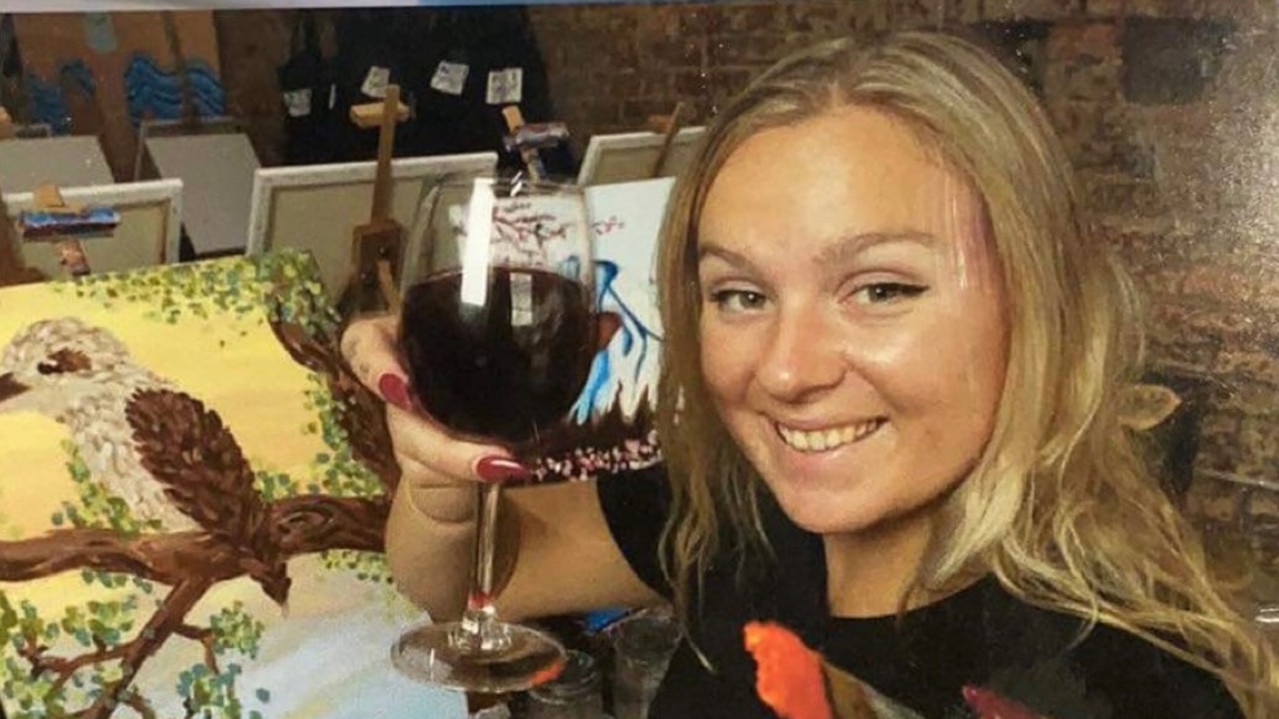
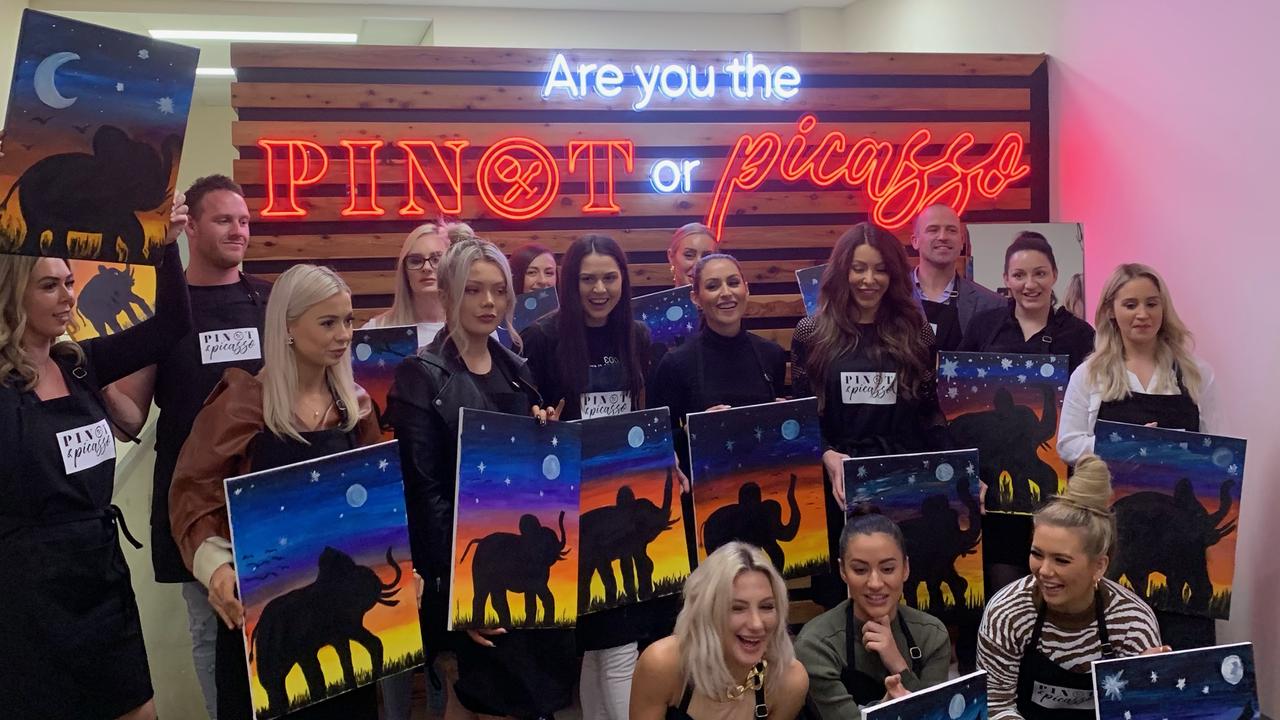
Another Chapel St business, a laneway cocktail bar in Windsor called Her, was unlucky enough to open on May 4 when the Covid-19 situation was looking positive across the country.
Since then, they’ve been hit with three lockdowns in as many months.
Jason Wehbe, 37, co-owner of Her, said he had sunk in excess of $300,000 into the business and was so far not making any of it back.
“We were still trying to get the name out there, we didn’t have many people coming,” he told news.com.au.
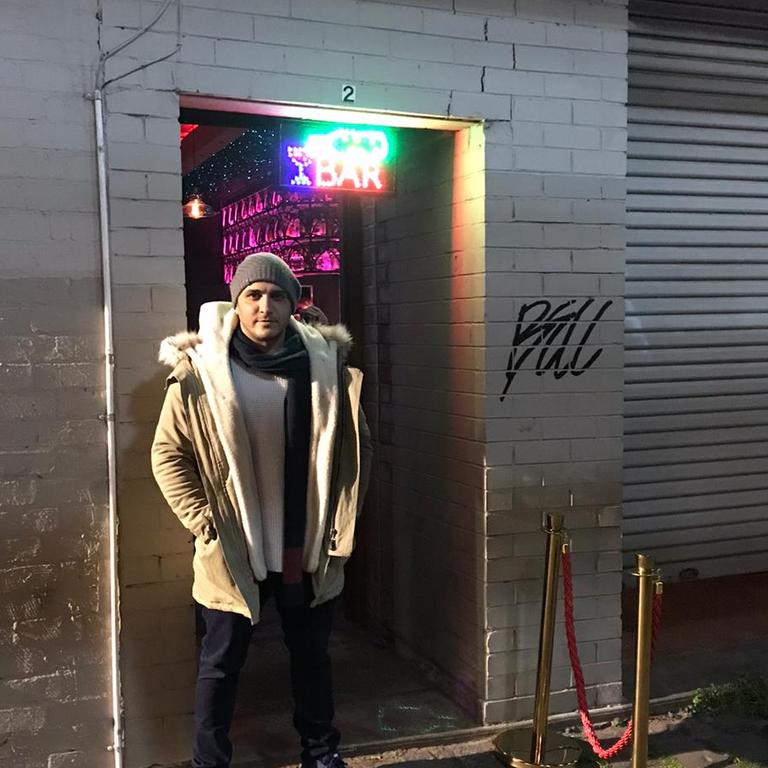

As a hidden bar, Mr Wehbe said the plan was for word of mouth to fuel their customer base.
“Just before the last lockdown we started to get really good traction, and then that died,” he said.
He added that he was planning on “relying on the bar as a source of income, obviously now I can’t rely on it as I intended”.
Jack Abblitt is the head mixologist of Her Bar and said his bosses were “haemorrhaging money at the moment” because of the fit-out, design and stock in the place.
“The longest day we had trading consecutively without Covid was six days,” he said.
“Everything in Her Bar we make is fresh ingredients. I make my own infused gin. That leads to massive, massive waste.”
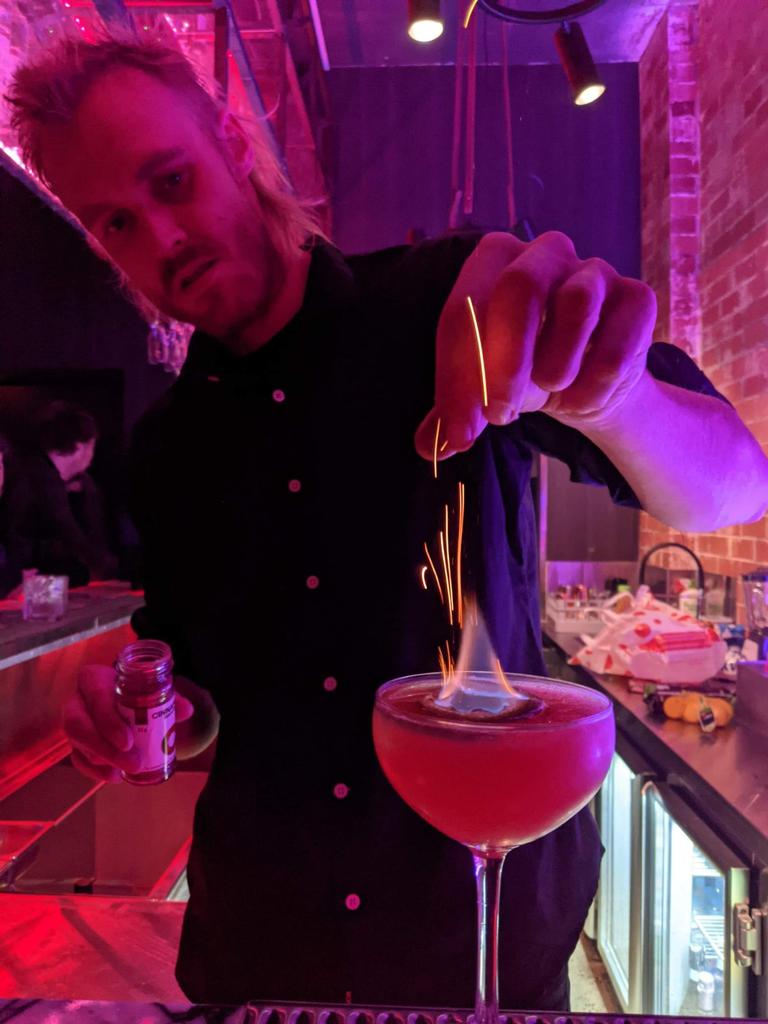

Mr Abblitt added that rent was around $2000 a week as it’s “an expensive place to be”.
“Since this on and off lockdown thing is happening, we decided not to do a grand opening.
“We’re just sitting here paying rent just waiting for lockdown to go away and it probably never will.”
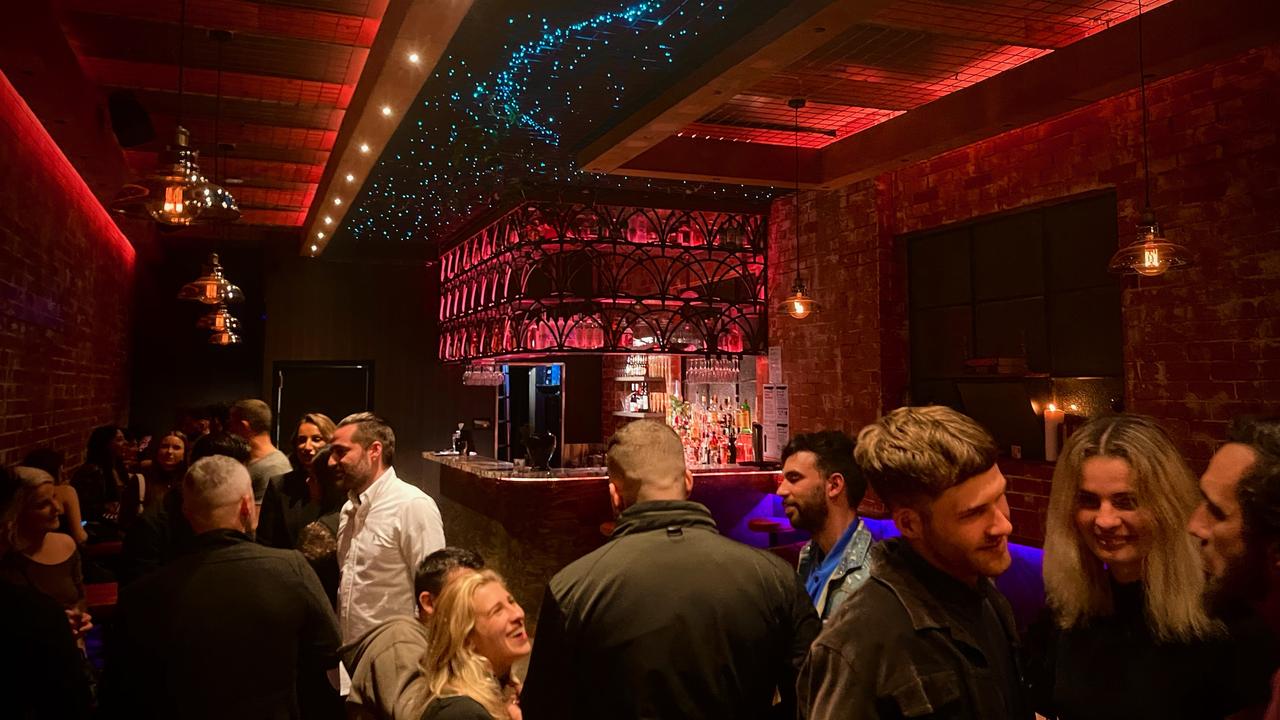
Jono Francisco and Sasha Limberger are another pair that only just launched their live music bar before Melbourne was plunged back into lockdown.
It was a “life long dream” for Mr Francisco to have his own business, so they launched Jono’s Piano Bar in June.
“The inspiration was to help the hospitality and music industry as they have been the hardest hit industry and I was motivated to get it done and rise like a phoenix from the ashes of the pandemic and I thought it would all be over by June, so we took a risk,” he admitted.
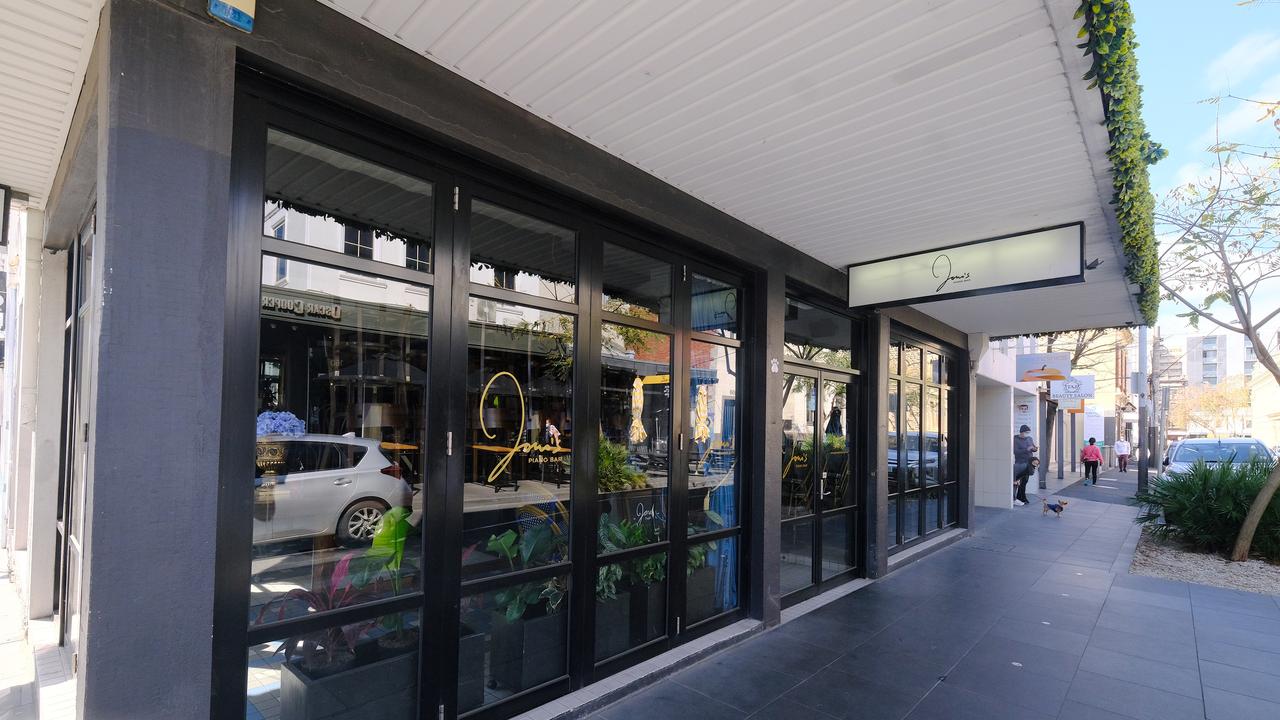
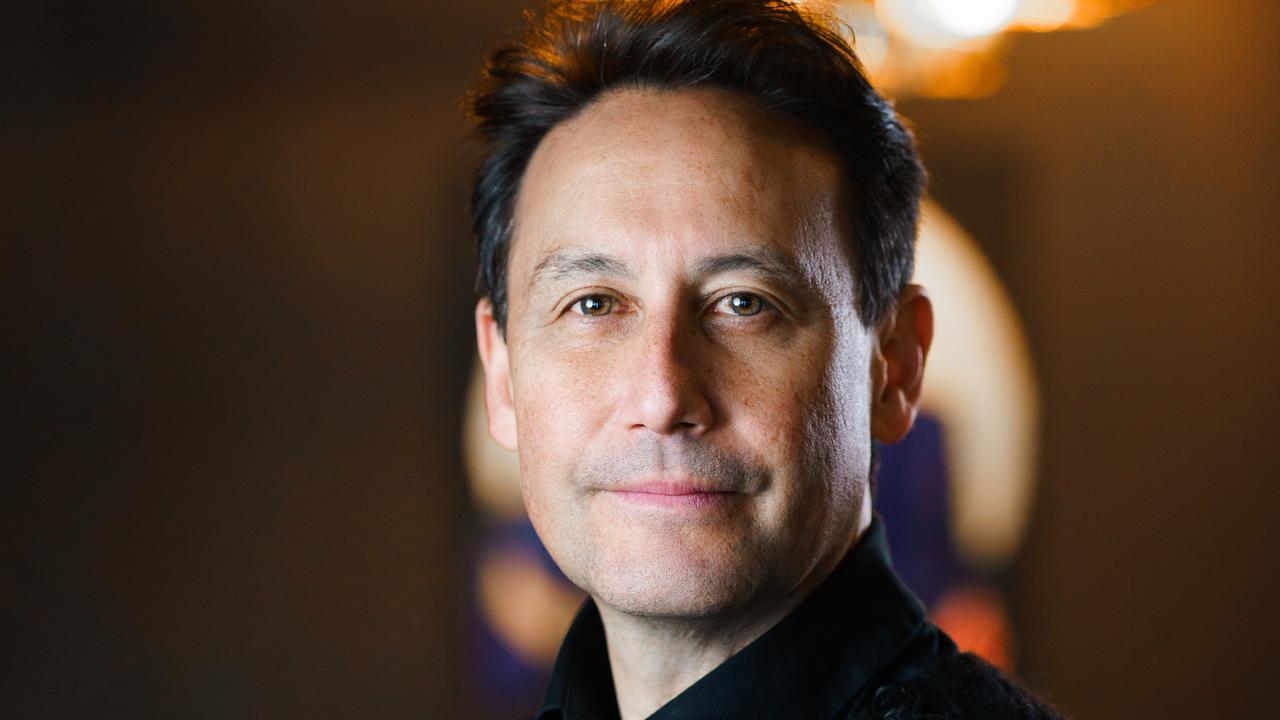
The Prahan-based business was open for just five weeks at limited capacity due to restrictions before Melbourne went back into lockdown.
The venue is licenced for 116 people maximum and they were allowed about 75 and this went down to 40 when the Delta strain started to emerge.
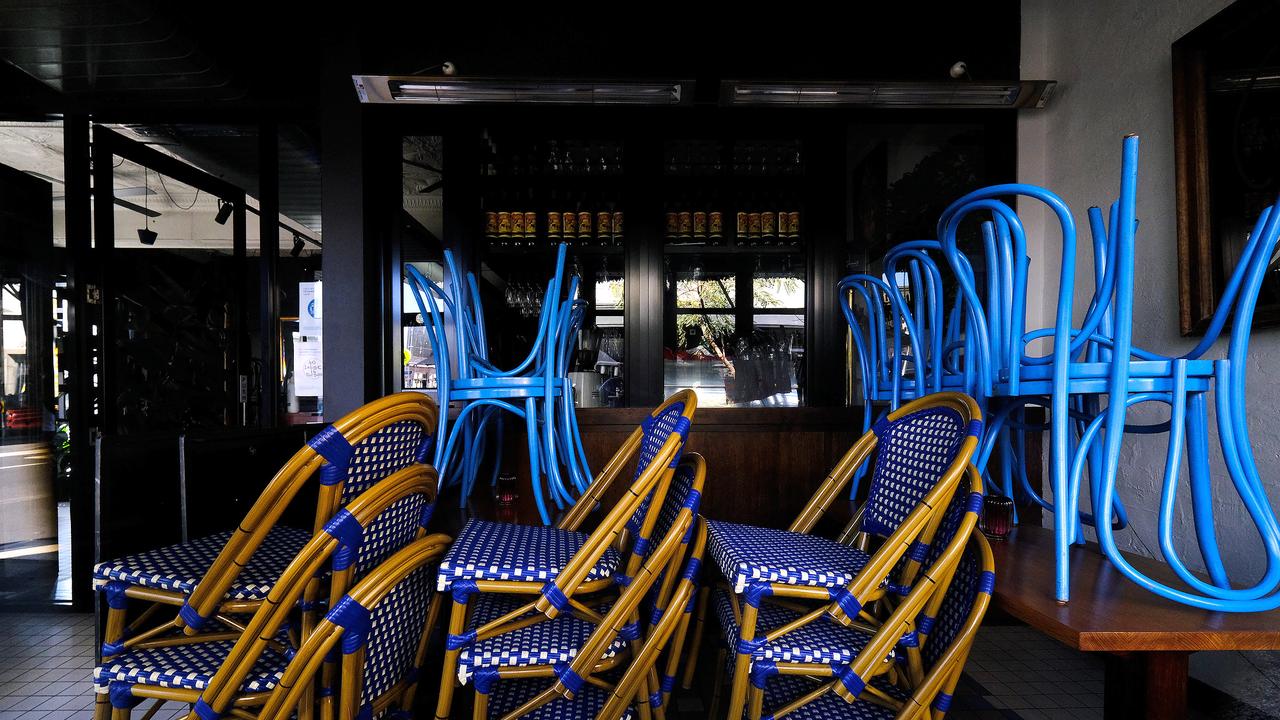
The 51-year-old said he expects the piano bar will survive this lockdown, but his hardest task is having to cancel musicians who were booked in.
“It’s very disheartening to call them and postpone their gigs at least three weeks or beyond as there is no talk of hospitality opening up,” he said.
He said a lot of friends in similar businesses have gone under which is “disappointing” but he is hoping to ride out lockdown and come out bigger and better.
Have a similar story to share? Contact Alex and Sarah on alex.turner-cohen@news.com.au and sarah.sharples@news.com.au.




